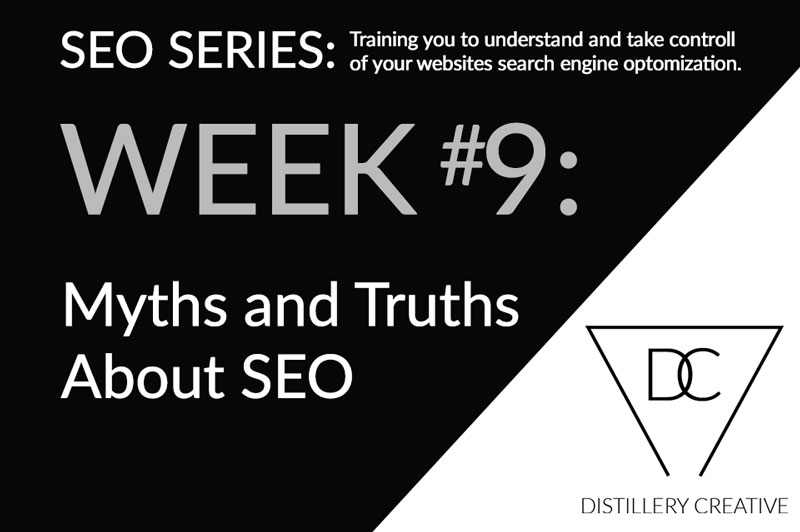
Myths and Truths About SEO
Like anything in life, there are many rumors floating around the internet about SEO. Many of the rumors are the direct result of not understanding the basics of SEO. We hope we have equipped you over the last several posts to be able to detect truth versus pure speculation, but there are a few rumors we would like to address directly. Here are a few SEO myths busted:
1. “I have to rank #1 for my keyword. If I don’t, no one is ever going to find my site!”
One of the SEO myths that has been spread largely is due to a misunderstanding about keywords. Keywords are for generating web traffic, so keyword research is useful for figuring out how to put yourself in front of your target audience. However, your target audience doesn’t limit itself to just one or two general keywords (often called the “short tail”). Your audience is actually more likely to find you with specific searches containing a larger number of keywords (also called the “long tail”).
Let’s say, for example, you are a food blogger who focuses on low-fat recipes, and you’re looking for ways to reach your audience with SEO. It would be ineffective to target the keyword “low-fat recipes” on every single page. A better strategy would be to target topics like “lean chicken a la king” or “no butter chocolate chip cookies.”
This is why keyword research is important. Find the topics that are related to your industry to draw your ideal audience to your page.
(For a further explanation of long tail vs. short tail, check out this excellent article from Yoast)
2. “I use paid advertising. I don’t need to worry about SEO.”
Paid advertising and pay-per-click (PPC) campaigns are great ways to convert customers and get more traffic for your website (see our previous post on SEO and PPC). However, users are much more likely to pay attention to (and click on) organic search results because they tend to trust them more than ads.
SEO and PPC are complementary strategies. SEO requires extensive work to see a return on investment, but the results are worth it once you have established yourself as a trusted authority. PPC can provide immediate benefits but are expensive and may not provide a good return on investment in the long run. When you correctly combine SEO and PPC, you diversify your marketing efforts and can reach a wider audience.
3. “SEO companies cost too much. I can do it all myself.”
It’s true; a good SEO consultant is expensive. And unfortunately, many underhanded SEO companies give the good consultants a bad name.
It may also be true that you can learn how to do SEO yourself using resources available on the internet. But you have to ask yourself, “Is it worth it?”
As an entrepreneur and a business owner, your time is valuable. Yes, you could spend days, weeks, and months learning more about search engines and how to help your page rank better. But is that the best use of your time? Would you be better served helping your clients and developing your business strategy?
A good SEO consultant provides knowledge and expertise that is learned from doing optimization day in and day out. They know how to analyze the data from your site, how to figure out the best way to compete against your industry rivals, and how to effectively apply best practices for your unique situation. These are things that are not easy to learn from an article, and takes experience to do well.
Outsourcing your SEO is an investment in your business. It will free up your time so that you can focus your efforts on growing your business and pursuing your passions.
We would love to help you focus on your business by taking care of your SEO needs. Contact us if you’d like to learn more about our services!


